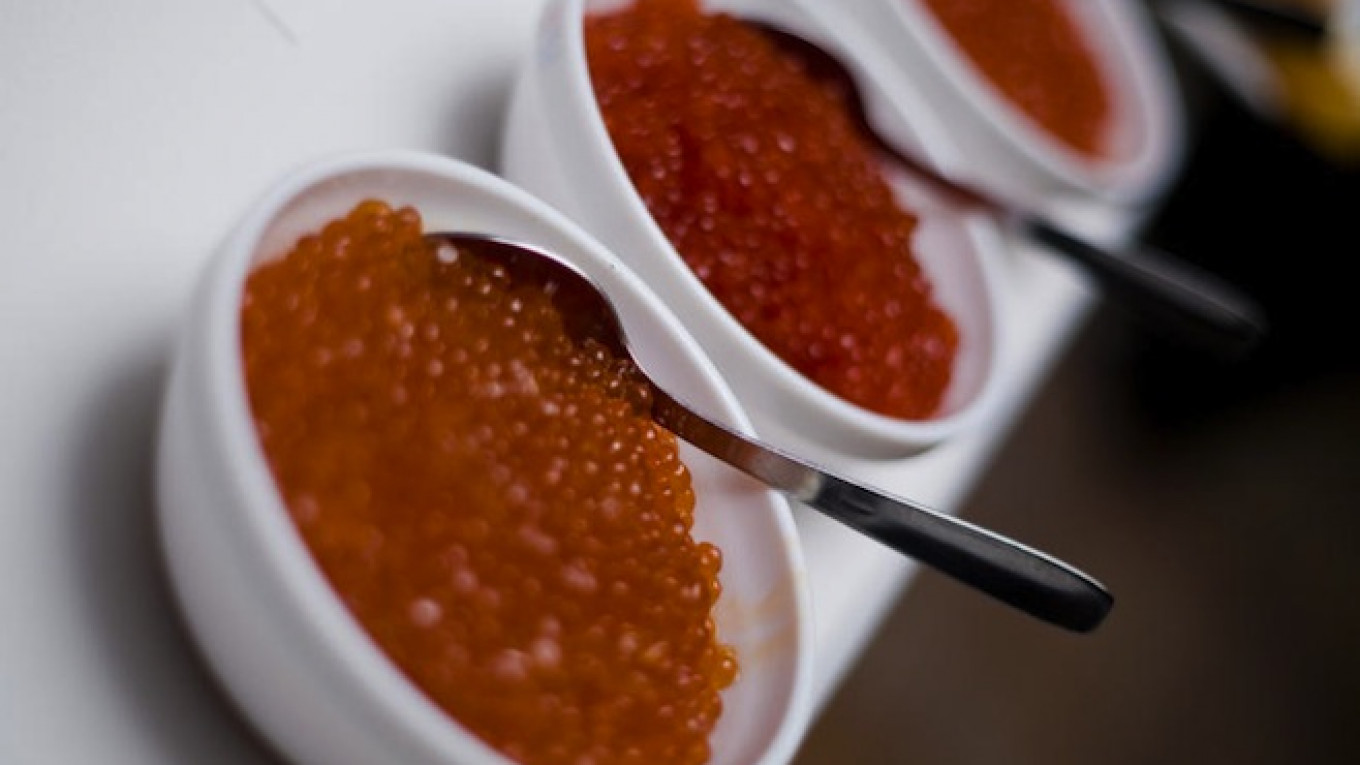The majority of red caviar sold in Russian food stores does not comply with basic hygiene regulations, the TASS news agency reported Monday.
Experts from Russian standards watchdog Roskachestvo found that 13 out of 23 samples inspected were produced in conditions that did not conform to sanitary regulations, said deputy Chairman of Roskachestvo Yekaterina Saratseva. Bacteria linked to E-Coli was detected in five of the samples.
Saratseva said that the presence of bacteria was evidence of hygiene issues in the caviar production sector and could be caused by even a minor mistake.
"The modern Russian market of salmon caviar is very complicated and problematic,” the study reported. “Half of caviar sold by retail outlets is unsafe and some contain pathogens of colon bacillus, staphylococcus aureus and yeast."
The document also notes that a high yeast content can spoil the caviar's flavor, lead the caviar tin to explode, and have a negative impact on the digestive system.
A Message from The Moscow Times:
Dear readers,
We are facing unprecedented challenges. Russia's Prosecutor General's Office has designated The Moscow Times as an "undesirable" organization, criminalizing our work and putting our staff at risk of prosecution. This follows our earlier unjust labeling as a "foreign agent."
These actions are direct attempts to silence independent journalism in Russia. The authorities claim our work "discredits the decisions of the Russian leadership." We see things differently: we strive to provide accurate, unbiased reporting on Russia.
We, the journalists of The Moscow Times, refuse to be silenced. But to continue our work, we need your help.
Your support, no matter how small, makes a world of difference. If you can, please support us monthly starting from just $2. It's quick to set up, and every contribution makes a significant impact.
By supporting The Moscow Times, you're defending open, independent journalism in the face of repression. Thank you for standing with us.
Remind me later.


